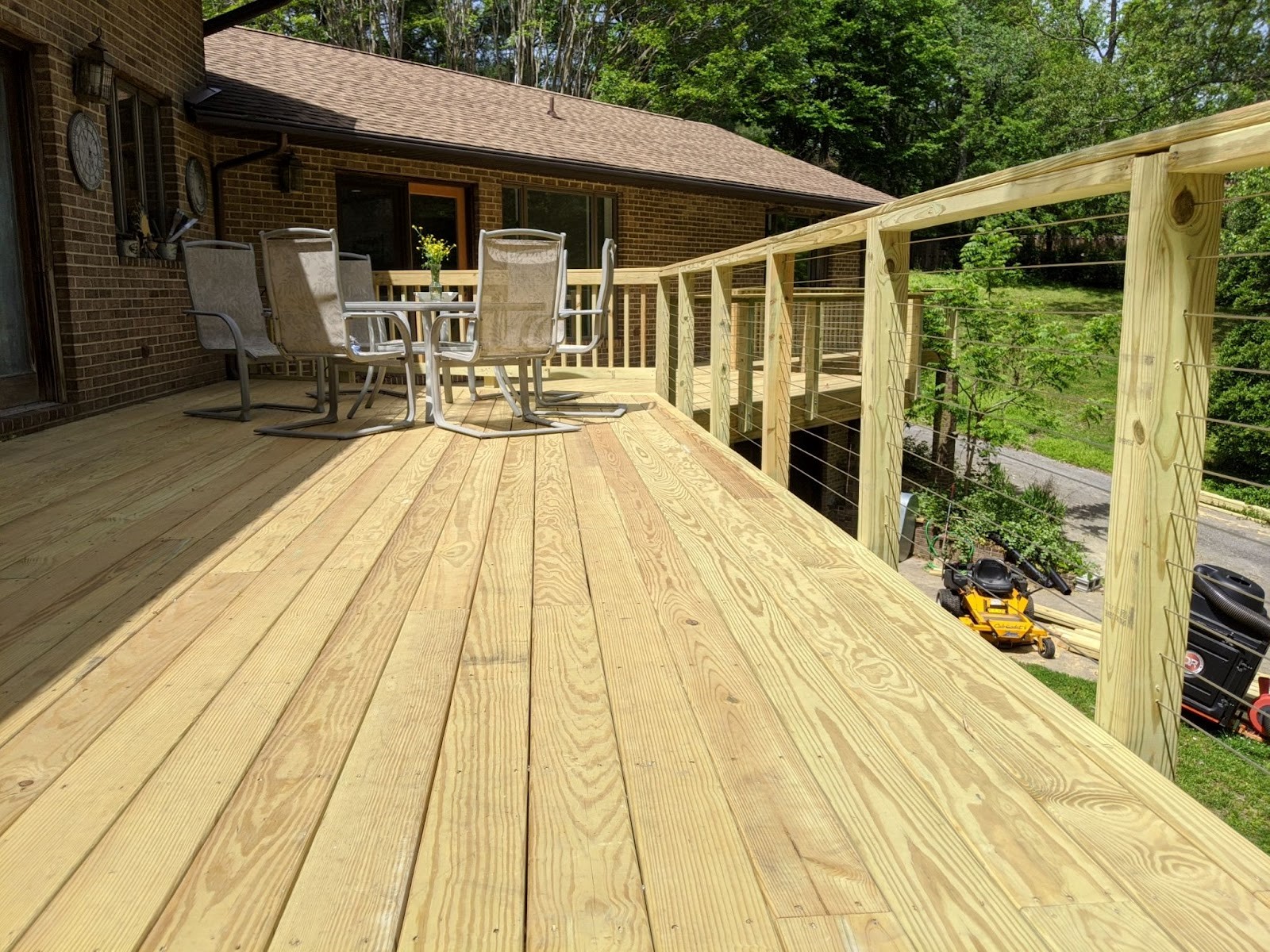Wooden Deck Vs Concrete Patio: Which is Better for You?
When it comes to backyard renovations, one of the most common choices is between a wood deck or a concrete patio. Both have their pros and cons, but which one is better for you? In this article, we will discuss the benefits of both options and help you decide which is the best choice for your home.
1. Concrete patio pros
- Durable and long-lasting: With proper care, a concrete patio can last for decades.
- Easy to maintain: Concrete is easier to clean and does not require as much upkeep as a wood deck.
- Adds long-lasting value to your home: A well-built, well-maintained concrete patio can increase the value of your home and retain its value over long periods of time.
- Free of splinters: Concrete patios do not have nails or splinters that can hurt children or pets.
- Lower upfront cost: The initial cost of a concrete patio is lower than that of a wood deck.
- Lower maintenance costs: In the long run, a concrete patio will cost less to maintain.

2. Wood deck pros
- Natural beauty: Wood decks can add a classic style and charm to your home that some people consider more aesthetically pleasing than concrete patios.
- Versatile: Wood decks can be customized to fit any shape or size. They can have multiple levels, built-in benches, and other complex features that are not easily attainable with concrete.
- Cooler in the summer: Wood decks are cooler than concrete patios in the summer, making them more comfortable to walk on barefoot.
- Better view: If your home is on a hill or has a great view, a wood deck can offer you a better vantage point.
- It can be stained or painted to match your home’s exterior.
Now that we have gone over the pros of each option, let’s discuss the cons.
4. Wood deck cons:
- Requires more maintenance than a concrete patio: Decks need to be sealed, stained, painted, cleaned, and inspected on a regular basis to maintain their lifespan (unless you choose composite decking.)
- Can attract insects: Imagine the perfect home for you. It has a warm and inviting feel, with plenty of space to romp around in peace or host friends over for tea on those cold winter nights. This is exactly how insects like carpenter bees perceive your wooden deck. Termites, on the other hand, see wood as a buffet.
- Can rot, warp, or splinter if not maintained properly: If you fail to properly maintain your wood deck, it can rot, warp, or splinter. Splinters can be treacherous. Excessive rot can increase the risk of the deck collapsing, which is why yearly inspections are highly recommended.
- More expensive than a concrete patio: The initial cost of a wood deck is higher than that of a concrete patio. Even though the upfront cost is higher, it lasts less than half the time as a concrete patio.
So, which is better for you? A concrete patio or wood deck?
The answer may depend on your climate, budget, and how much maintenance you are willing to do. If you don’t want to spend energy on upkeep, a concrete patio may be the better option. If you’re willing to do more maintenance and prefer great views and less heat, a wood deck may be the way to go.
No matter which route you choose, both concrete patios and wood decks can provide you with a beautiful and functional outdoor living space. Ultimately, the decision comes down to personal preference and your budget.
But there’s something you need to keep in mind before making your final decision. Make sure you also consider a composite deck. Composite decks are a great choice if you want a deck without the downsides of wood.
Now that you have read about the pros and cons of each option, it’s time to create your dream outdoor living space. Call KP Contracting today to get started with your new deck or patio!
Phil Parsons
Phil Parsons is an owner at KP Contracting with 20-years’ experience in custom remodeling and the development of outdoor living spaces that bring friends and family together. He is a degreed engineer, and his work has been featured on HGTV.